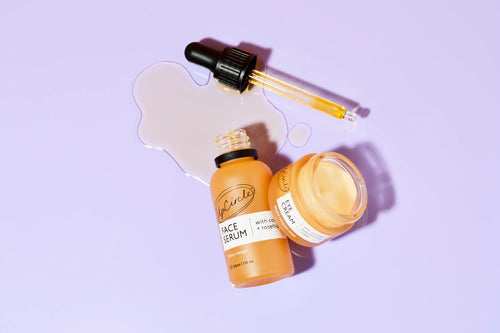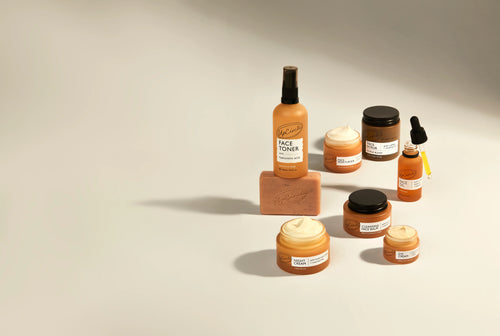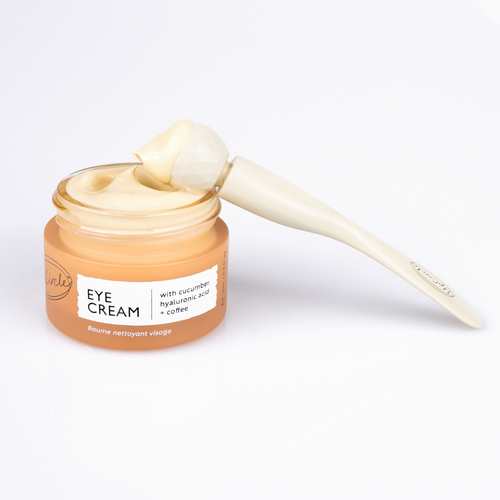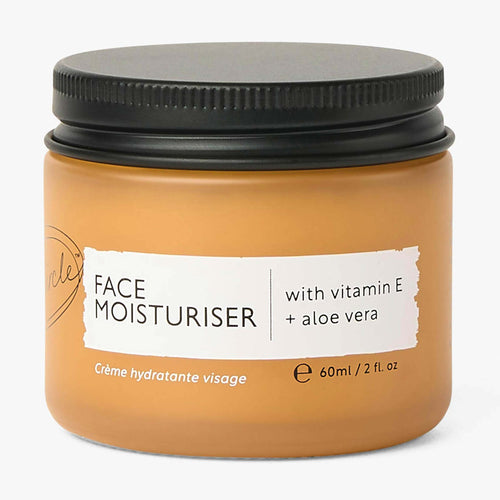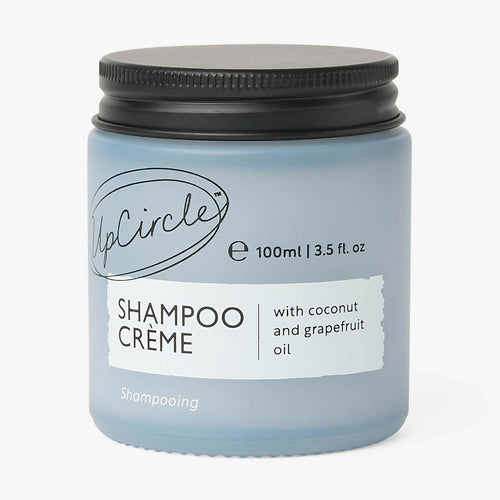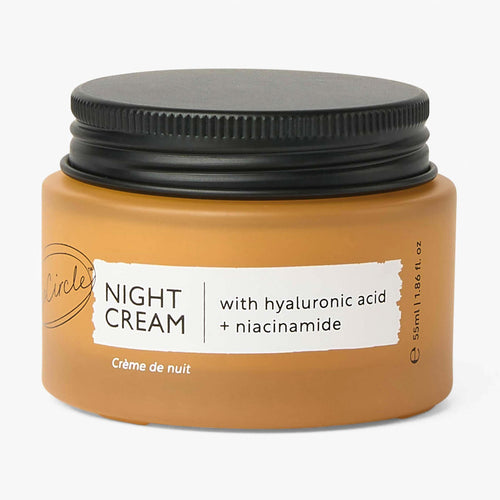This one might get a little bit technical! You may have heard us talk before about transepidermal water loss (TEWL) in relation to your skin, but what does that actually mean?
We’ll dive – excuse the pun – into everything you need to know about TEWL and how you can prevent transepidermal water loss through your skincare.
What is transepidermal water loss?
Transepidermal water loss is an objective measurement of skin integrity, measured as the amount of water lost across the stratum corneum – the outermost layer of skin – through evaporation. TEWL is a natural physiological phenomenon which reflects the skin's ability to retain moisture and act as a barrier.
It’s important to note that our skin is constantly losing water to TEWL, and this is completely normal. The typical amount of water lost via TEWL in humans is 300ml to 400ml per day. However, we can try to prevent the amount of water lost by supporting our skin barrier.
Why does transepidermal water loss matter?
Transepidermal water loss is an important process to keep in mind when considering the overall health of your skin.
1. Skin barrier health
TEWL reflects your skin barrier's ability to retain water and protect your skin against external aggressors and free radicals. Elevated TEWL can often be an indicator of a compromised skin barrier, leaving the skin vulnerable to dryness, irritation, and environmental damage.
2. Skin hydration and moisture
It should be no surprise that transepidermal water loss impacts your skin’s hydration and moisture levels – but what’s the difference? The terms hydration and moisturisation are often used interchangeably. While they are both essential processes for your skin’s health, they differ in their purpose and how they work.
Skin hydration is primarily concerned with increasing the water content within the skin. Humectant ingredients such as hyaluronic acid, aloe vera and glycerin are all especially helpful in boosting your skin’s hydration.
Whereas skin moisturisation is concerned with preventing the water content your skin has from being lost, rather than actively trying to draw water into the skin as hydrators do. Moisturising ingredients create a protective barrier on the skin, sealing in hydration and reducing the amount of TEWL your skin experiences. Find out more about the differences between hydration and moisturisation.
Excessive TEWL can lead to loss of elasticity in the skin, and uncomfortable dry flaky skin.
3. Protection against environmental stressors
One of the primary functions of your skin’s natural barrier is to protect against damage from stressors in your environment, like air pollution, cigarette smoke, and UV rays.
Factors influencing transepidermal water loss
Several factors can impact transepidermal water loss and its effects on the skin.
1. Skin type
Your unique skin type influences your TEWL, with dry and sensitive skin being more prone to water loss through evaporation. Oily skin often has a stronger lipid barrier, meaning TEWL is reduced.
2. Over cleansing and over exfoliating
Anything that strips your skin of its natural oils can influence how much water your skin loses through evaporation.
Over-cleansing your skin with harsh cleansers and excessively exfoliating your skin strips the skin of natural oils, weakening and disrupting your skin’s natural barrier. Sticking to natural products with skin-loving ingredients is one of the best ways to support the skin barrier and reduce TEWL.
3. Ageing skin
As we age, it becomes harder for our skin to maintain the lipid barrier. As ageing skin typically struggles to maintain moisture in the skin, TEWL is usually higher.
4. Environmental factors
Factors such as humidity, temperature, and UV levels can influence transepidermal water loss.
>Low humidity can increase TEWL as the skin loses water to a dry environment. Overly cold or hot weather, especially combined with wind, strips moisture and elevates TEWL. Additionally, prolonged sun exposure damages the skin’s natural barrier, increasing TEWL.
How to prevent transepidermal water loss
Preventing transepidermal water loss can help to keep your skin as hydrated and moisturised as possible. There are several ways to do reduce TEWL:
1. Protect your skin’s natural barrier
Your skin’s natural lipid barrier is essential for your skin’s overall health and the amount of TEWL you experience. Strengthening your skin barrier helps to reduce transepidermal water loss, and choosing the products you use on your skin carefully is a great way to do this.
- Cleansers: Ensure you use sodium lauryl sulfate (SLS) free cleansers, which are more gentle on the skin. Opt for natural cleansers which cleanse without disrupting the skin barrier.
- Moisturisers: Opt for moisturisers formulated with occlusives which form a protective layer on the skin; humectants which attract and retain moisture in the skin; and emollients like ceramides which replenish lipids and repair the skin barrier.
Some specific ingredients to look out for which work well to strengthen the skin barrier are:
- Ceramides: Helps to hold together skin cells and strengthen the lipid barrier.
- Niacinamide: Improves barrier function and soothes inflammation.
- Glycerin: Adds hydration to the skin.
- Hyaluronic acid: Hydrates the skin, holding 1,000 times its weight in water.
2. Be aware of environmental aggravators
Environmental factors influence TEWL, so take care to always wear sunscreen to protect your skin from UV rays, and cover exposed skin in the wind.
Additionally, adapt your skincare routine for the season – for example focusing more on adding hydration to the skin in winter. In this season, the cold weather reduces moisture levels in the air, making it harder for your skin to stay hydrated.
Whereas in summer, sun exposure can lead to hyperpigmentation, clogged pores and breakouts – which in turn can damage your skin’s natural barrier and influence the amount of water lost from your skin due to evaporation.
Discover our full range of cruelty-free, natural skincare to support your skin’s lipid barrier.

